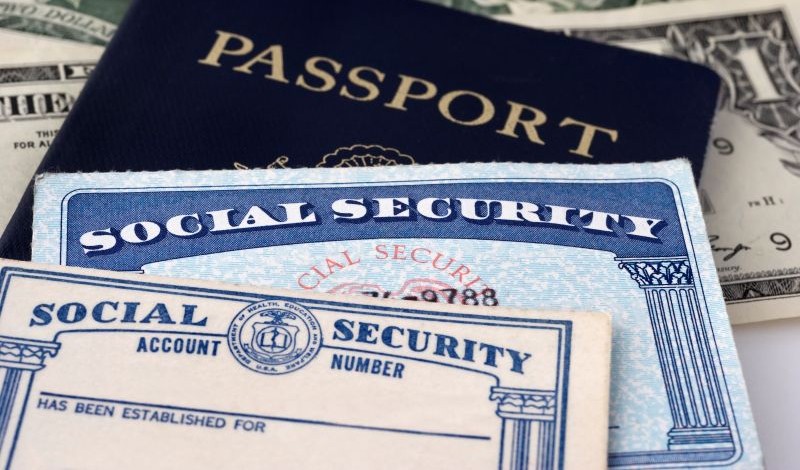
Scholar argues that ending birthright citizenship threatens the rights of all U.S. citizens.
On the first day of his second term, President Donald J. Trump issued an unprecedented executive order which declared that children are not eligible for citizenship if their parents are not citizens or lawful permanent residents of the United States.
In a recent article, Jacob Hamburger, assistant professor of law at Marquette University Law School, argues that President Trump’s birthright citizenship executive order is not just an immigration policy but a “regulation of citizens.” Hamburger contends that the goal of the executive order is to decrease immigration by discouraging noncitizens from traveling to the United States to give birth. Ending birthright citizenship, however, would also impose administrative burdens on any person seeking to prove their U.S. citizenship, according to Hamburger.
Under President Trump’s executive order, a birth certificate would no longer establish proof of U.S. citizenship. Hamburger observes that the order would require Americans to prove their parents’ citizenship or legal status to enjoy the rights that accompany U.S. citizenship. Hamburger predicts that this additional requirement would affect tens of millions of citizens each year.
Hamburger argues that President Trump’s executive order will impose burdens on Americans seeking state and federal welfare benefits, such as Medicaid and food assistance. Even under existing law, only U.S. citizens can receive most health and welfare benefits. But if a birth certificate showing that a person’s place of birth in the United States is not adequate proof of citizenship, states may start denying benefits to eligible Americans who cannot provide evidence of their parents’ citizenship or legal status. Under the executive order, citizens may also experience difficulty obtaining other documents to prove eligibility for benefits, such as Social Security numbers (SSNs) and passports, according to Hamburger.
Many citizens would also encounter administrative burdens to obtain SSNs under the birthright citizenship executive order, Hamburger argues. SSNs allow U.S. citizens and eligible noncitizens to establish their employment eligibility, pay taxes, and access certain federal and state benefits. Under the current program, the U.S. Social Security Administration (SSA) receives information from state and local agencies to issue an SSN to each newborn born in a hospital. Ninety-nine percent of infants obtain their SSNs through this process.
The Trump Administration has already taken steps to change how newborns receive SSNs. Under President Trump’s executive order, SSA must verify that a newborn’s parents are U.S. citizens or have an “eligible immigration status” before issuing an SSN. Hamburger contends that this change to the SSA program “would be no small undertaking” for hospitals, which would be responsible for gathering documentation from every newborn’s parents.
Hamburger suggests that the parental citizenship verification process imposed by the executive order could also create administrative burdens for new parents. If parents do not bring proof of citizenship to the hospital when they give birth, their child may not receive an SSN. Hamburger argues that if children do not obtain an SSN through the “convenient, in-hospital” system when they are born, their parents must apply through a separate process. This added administrative hurdle for parents could leave many eligible children without SSNs, Hamburger contends.
According to Hamburger, all U.S. citizens could also face a higher burden for obtaining passports under the birthright citizenship executive order. Only U.S. citizens and nationals can receive passports, which allow them to travel internationally and prove their eligibility for federal health and welfare benefits. Passports also serve as proof of U.S. citizenship.
Passport applicants currently provide a birth certificate to prove their U.S. citizenship. Under the executive order, however, passport applicants would be required to produce evidence of their parents’ citizenship or legal status, Hamburger observes. He argues that this additional requirement poses a “massive bureaucratic challenge” for the U.S. Department of State and passport applicants.
Hamburger predicts that, without the “simple bright-line rule” that birth certificates establish proof of U.S. citizenship, states will develop varied procedures for Americans to prove their citizenship. As a result, people applying for benefits or identification documents in one state may face more scrutiny into their own citizenship or their parents’ citizenship than people in a neighboring state. Hamburger raises a concern that states with stricter eligibility requirements could disproportionately deny benefits to citizens, resulting in greater disparities in benefit access across states.
Overall, the “value of citizenship” would “weaken” if Americans across the country no longer have a uniform method to prove their citizenship, Hamburger warns.
Hamburger argues that framing the birthright citizenship executive order as a “regulation of citizens” rather than an immigration policy could encourage courts and the public to oppose the policy. Hamburger predicts that, although the U.S. Supreme Court is deferential to the President on immigration, many judges may “think twice about endorsing” a policy that would impact the basic rights of millions of American citizens.



